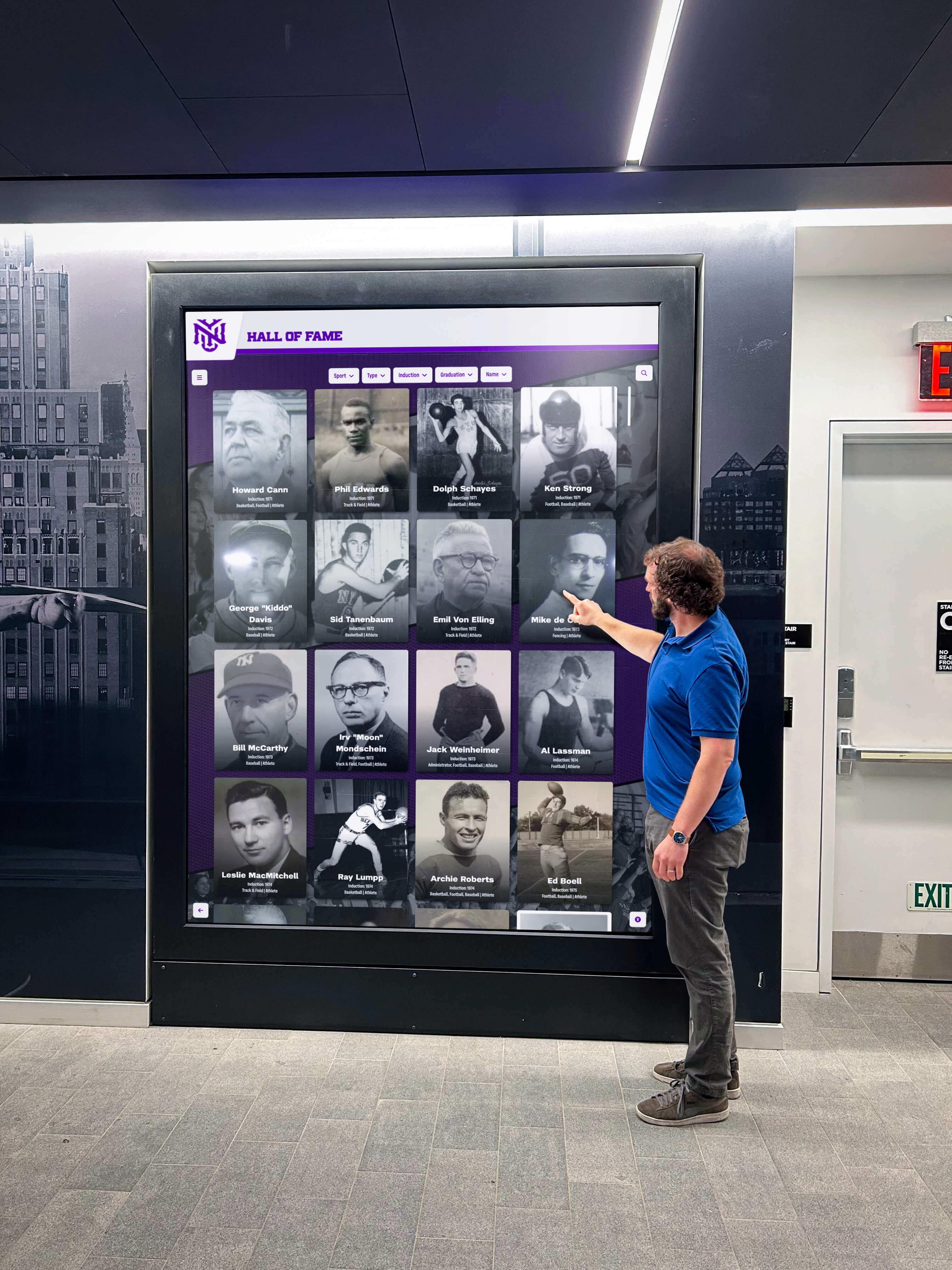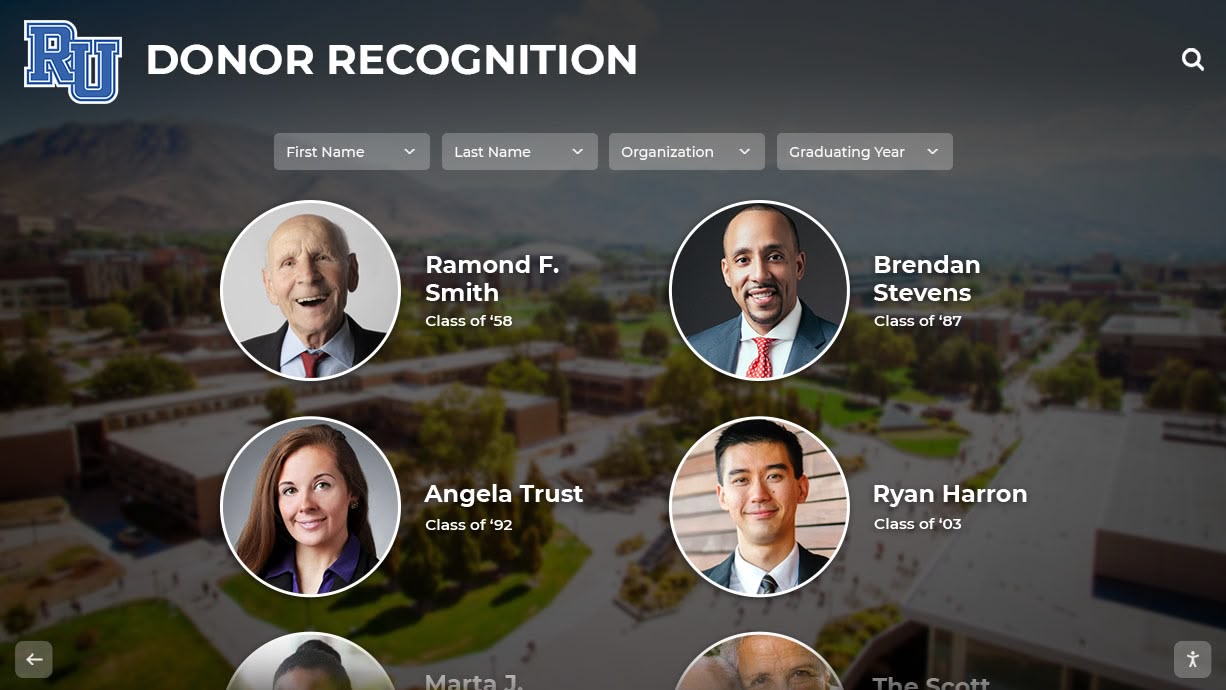Key Takeaways
Discover how to find and join Phi Alpha Theta chapters at universities nationwide. Complete guide to locating your local chapter, membership requirements, benefits, and maximizing your history honor society experience.
Understanding Phi Alpha Theta: America’s Premier History Honor Society
Before exploring how to find and join chapters, understanding what Phi Alpha Theta represents and why membership matters provides essential context for appreciating the value this organization offers history students.
The Mission and History of Phi Alpha Theta
Phi Alpha Theta (ΦΑΘ) was created in 1921 at the University of Arkansas in Fayetteville, making it one of the oldest and most established academic honor societies in the United States. The organization’s founding purpose—to recognize and encourage excellence in the study and writing of history—remains central to its mission more than a century later.
The society’s name derives from the Greek phrase “Philosophia Adelphia Timao,” meaning “love of wisdom, of fellowship, and of honor.” These founding principles continue to shape every dimension of the organization, from local chapter activities to national programming, emphasizing not just academic achievement but intellectual community and recognition of scholarly excellence.
Today, Phi Alpha Theta has grown to encompass more than 970 active chapters at colleges and universities across the United States, with new chapters regularly being established at institutions recognizing the value of honoring history students’ achievements. The society’s national headquarters and editorial offices for its journal, The Historian, are located at the University of South Florida, providing centralized support and resources for chapters nationwide.

Why Phi Alpha Theta Membership Matters
Membership in Phi Alpha Theta provides benefits extending far beyond a line on your resume, though the credential itself carries significant weight in graduate school applications, scholarship competitions, and professional opportunities.
Academic Recognition and Credential Enhancement:
Joining Phi Alpha Theta provides formal recognition of your academic excellence in history, validating the substantial intellectual work you’ve invested in historical studies. This recognition appears on academic transcripts at many institutions, signals to graduate admissions committees that you achieved distinction in your undergraduate work, and demonstrates to scholarship committees that peers and faculty recognized your scholarly capability.
According to educational research, honor society membership positively influences graduate admissions decisions, with selection committees viewing membership as evidence of academic seriousness, intellectual capability, and commitment to scholarly excellence. For history students pursuing graduate programs, law school, teaching certification, or careers in museums, archives, and cultural institutions, Phi Alpha Theta membership provides credible third-party validation of historical knowledge and analytical capability.
Research and Publication Opportunities:
Phi Alpha Theta offers numerous opportunities for undergraduate and graduate students to present research and publish scholarly work—experiences typically reserved for professional historians. The organization’s journal, The Historian, publishes student research alongside faculty scholarship, providing authentic publication experience that strengthens graduate applications and builds research portfolios.
The society sponsors research awards recognizing exceptional undergraduate and graduate papers across various historical fields and methodologies. These competitive awards provide both recognition and financial prizes supporting continued research. Additionally, regional conferences and the biennial national convention offer platforms for students to present research, receive feedback from professional historians, and develop conference presentation skills essential for academic and professional success.
Networking and Professional Development:
With over 400,000 members including current students, faculty, and established historians working in academia, government, museums, archives, and diverse professional fields, Phi Alpha Theta provides access to an extensive network of individuals who share your passion for history. These connections prove invaluable for finding mentors, discovering research opportunities, securing internships, obtaining graduate program recommendations, and building professional relationships that extend throughout careers.
Chapter activities typically include guest lectures from distinguished historians, field trips to historical sites and museums, service projects supporting history education, and social events building community among history students and faculty. These activities create informal networking opportunities while deepening engagement with historical study beyond classroom requirements.
Scholarship and Grant Opportunities:
Phi Alpha Theta administers numerous scholarships and research grants available exclusively to members. These competitive awards support graduate study, thesis research, conference travel, and professional development opportunities. For students concerned about financing graduate education or research projects, Phi Alpha Theta scholarships provide significant financial assistance available only through membership.
The organization offers separate awards for undergraduate achievement, graduate research, thesis projects, and dissertation work, ensuring scholarship opportunities exist regardless of your current educational stage. Chapter participation strengthens scholarship applications by demonstrating sustained engagement with the historical profession beyond coursework completion.

Membership Requirements: Do You Qualify?
Understanding Phi Alpha Theta membership requirements helps determine whether you currently qualify or what steps you need to take to become eligible.
Undergraduate Student Requirements:
For undergraduate students, Phi Alpha Theta membership requires:
- Completion of at least 12 semester hours (typically 4 courses) in history
- Minimum GPA of 3.1 in history courses
- Minimum overall GPA of 3.0
- Courses earned through classroom instruction, online learning, AP credit, or transfer credit all count toward the requirement
Importantly, you do not need to be a history major to join Phi Alpha Theta. Students majoring in political science, international relations, education, pre-law programs, or any field who have completed sufficient history coursework with qualifying grades are eligible for membership. This inclusive approach recognizes that excellent historical scholarship transcends major declarations.
Graduate Student Requirements:
Graduate students pursuing master’s or doctoral degrees in history qualify for membership by:
- Completing at least 12 semester hours toward their graduate degree
- Maintaining a GPA of 3.5 or higher in graduate coursework
- Completing approximately 30% of their program’s requirements for the degree
Graduate student membership recognizes the higher standards expected at advanced degree levels while providing access to resources particularly relevant for thesis research, dissertation work, and entry into the professional historical community.
Faculty and Professional Membership:
Faculty members above the rank of instructor who teach history automatically qualify for Phi Alpha Theta membership, as do professional historians working in archives, museums, government agencies, or other history-related positions. Faculty membership supports chapter advising while connecting student members with established scholars in the field.
Membership Investment:
The one-time Phi Alpha Theta initiation fee is $50, which includes:
- A membership certificate suitable for framing and display
- Eligibility to apply for all Phi Alpha Theta scholarships and awards
- A one-year subscription (four digital issues) to The Historian journal
- Access to member resources and programming
- Lifetime membership status with no recurring dues
This one-time investment provides permanent membership and credentials you’ll retain throughout your career, making it one of the most cost-effective professional investments history students can make.
Finding Your Local Phi Alpha Theta Chapter
If you meet the membership requirements and want to join Phi Alpha Theta, your next step involves locating the chapter at your institution or finding the nearest chapter if your school doesn’t currently have one.
Using the Official Chapter Locator
The most efficient way to find Phi Alpha Theta chapters is through the organization’s official Chapter Locator tool available on their website at phialphatheta.org/chapter-locator.
How to Use the Chapter Locator:
The Chapter Locator organizes all active Phi Alpha Theta chapters by geographic region and state, making it simple to find institutions with chapters in your area:
- Visit the Chapter Locator page on the Phi Alpha Theta website
- Select your state or region from the organized directory
- Browse the list of institutions with active chapters in your area
- Identify your institution if it appears in the directory
- Note chapter contact information including faculty advisors and chapter officers when available
- Follow up directly with your chapter for information about joining and upcoming activities
The Chapter Locator provides the official, most current information about active chapters, as new chapters are regularly chartered while inactive chapters may temporarily suspend operations. Always consult this official resource rather than relying on potentially outdated secondary sources.
Regional Organization:
Phi Alpha Theta organizes its chapters into regional groupings facilitating regional conferences and coordination. Regions include:
- Alabama Region
- Arkansas Region
- California North Region
- California South Region
- Colorado Region
- Florida Region
- Georgia Region
- Illinois Region
- Indiana Region
- Louisiana Region
- Maryland/DC Region
- Massachusetts Region
- Michigan Region
- Missouri Region
- New York Central and Western Region
- New York Eastern Region
- North Carolina Region
- Ohio Region
- Oklahoma Region
- Pennsylvania Region
- South Carolina Region
- Tennessee Region
- Texas Region
- Virginia Region
- Wisconsin Region
Understanding your region proves useful for identifying regional conferences and connecting with nearby chapters even beyond your own institution.

Contacting Your Campus History Department
If you prefer direct campus contact or want to verify chapter information, your institution’s history department provides the best starting point for Phi Alpha Theta inquiries.
Why Contact the History Department:
Most Phi Alpha Theta chapters are advised by history faculty members who coordinate membership recruitment, initiation ceremonies, and chapter activities. Your history department can:
- Confirm whether your institution has an active Phi Alpha Theta chapter
- Connect you with the faculty advisor who manages chapter operations
- Provide information about chapter officers you can contact directly
- Explain your institution’s specific membership application process
- Share details about upcoming initiation ceremonies or chapter events
- Answer questions about chapter activities and involvement opportunities
How to Make Contact:
Several approaches work effectively for reaching your history department:
- Visit the department office during regular business hours and ask to speak with someone about Phi Alpha Theta membership
- Email the department chair or administrative coordinator explaining your interest in joining and requesting chapter contact information
- Check the department website for information about honor societies and student organizations, which often lists chapter details
- Ask your history professors during office hours, as many are chapter members or advisors who can connect you with appropriate contacts
- Attend history department events where chapter officers often recruit new members and answer questions
History faculty and staff generally welcome student interest in Phi Alpha Theta and will gladly direct you to appropriate resources even if they’re not directly involved with chapter operations.
What to Do If Your Institution Lacks a Chapter
If you discover your institution doesn’t currently have a Phi Alpha Theta chapter, you have several options for either joining the organization or potentially establishing a new chapter on your campus.
Joining Through a Nearby Institution:
While chapters are typically associated with specific institutions, some regional chapters accept members from nearby colleges without their own chapters, particularly in metropolitan areas with multiple institutions. Contact chapters at nearby universities to inquire whether they accept membership applications from students at neighboring institutions.
This approach works especially well if you’re:
- Attending a small college near a larger university with an established chapter
- In a community college planning to transfer to a four-year institution
- Taking courses at multiple institutions through consortium arrangements
- Participating in cross-registration programs
Starting a New Chapter:
If no nearby chapter exists or you prefer to establish one at your own institution, Phi Alpha Theta provides resources and support for chartering new chapters. The process requires:
- Identifying a faculty advisor willing to coordinate chapter establishment and serve as long-term advisor
- Recruiting at least 10 qualifying students interested in founding membership
- Completing an application for chapter charter through Phi Alpha Theta national organization
- Paying required charter fees and institutional membership dues
- Organizing an inaugural induction ceremony with chapter installation
Information about starting new chapters is available on the Phi Alpha Theta website at phialphatheta.org/starting-a-chapter. Many students find that establishing a chapter provides valuable leadership experience while creating lasting organizational infrastructure serving future students.
Joining at the Graduate Level:
If you’ll be attending graduate school at an institution with a Phi Alpha Theta chapter, you can join during your graduate program even if your undergraduate institution lacked a chapter. Graduate membership provides all the same benefits while connecting you with graduate student peers and supporting your advanced research and professional development.
Programs focused on recognizing academic excellence demonstrate how institutional recognition systems value and celebrate scholarly achievement across educational levels.

The Membership Application and Initiation Process
Once you’ve located your chapter and confirmed your eligibility, understanding the application and initiation process ensures smooth membership transition.
Application Procedures
While specific application procedures vary by chapter based on institutional context and local practices, most follow similar general patterns:
Application Timing:
Most chapters accept new members once or twice per academic year, typically:
- Fall semester initiation for students who qualified by the end of the previous spring semester
- Spring semester initiation for students who achieved qualifying credentials by the end of fall semester
Some large chapters with substantial eligible student populations may conduct initiations each semester, while smaller chapters might initiate new members only once annually. Contact your chapter early in the semester to understand their specific timeline and avoid missing application deadlines.
Application Materials:
Typical application requirements include:
- Completed membership application form with personal information and academic details
- Unofficial transcript demonstrating completion of required history courses and qualifying GPAs (some chapters request official transcripts)
- Faculty recommendation from a history professor who can speak to your academic capability and scholarly character
- Membership fee payment of $50 covering national organization dues and member benefits
- Brief essay or statement explaining your interest in history and what you hope to gain from membership (required by some chapters)
Gather these materials well before application deadlines, particularly transcripts and faculty recommendations which may take time to obtain.
Application Submission:
Chapters typically accept applications through:
- Online submission forms linked from chapter websites or department pages
- Email submission to chapter advisors or officer email addresses
- Physical submission to history department offices or designated faculty member mailboxes
- Submission during chapter information sessions or recruitment events
Follow the specific submission procedures outlined by your chapter, and confirm receipt of your application to ensure it doesn’t get lost in the process.
Initiation Ceremonies
Once your application is approved, you’ll be invited to participate in an initiation ceremony formally inducting you into Phi Alpha Theta membership.
Ceremony Format:
Initiation ceremonies typically feature:
- Formal recognition of new members being inducted into the organization
- Presentation of credentials including membership certificates suitable for display
- Chapter tradition elements specific to your local chapter or institution
- Welcome from chapter officers and faculty advisors
- Opportunity to meet fellow members and learn about involvement opportunities
- Reception or social gathering celebrating new members and building chapter community
Ceremonies range from brief 30-minute events to elaborate programs lasting several hours, depending on chapter size, tradition, and institutional culture. Most are semi-formal occasions where business casual attire is appropriate.
What to Bring:
Come prepared with:
- Your membership fee payment if not already submitted
- Professional attire appropriate for an academic ceremony
- Questions about chapter activities and involvement opportunities
- Enthusiasm for joining a community of scholars who share your passion for history
Family and Guest Attendance:
Many chapters welcome family members and guests to initiation ceremonies, recognizing that academic achievement deserves celebration. Ask your chapter advisor whether guests are permitted and how many you may invite if you’d like family members to witness your induction.
Post-Initiation:
Following initiation, you’ll receive:
- Official membership certificate
- Access to The Historian journal subscription
- Information about member resources and benefits
- Connection to chapter communication channels
- Opportunities to participate in chapter activities and leadership
Maintain connection with your chapter through their communication channels to stay informed about events, research opportunities, and ways to maximize your membership benefits.

Maximizing Your Phi Alpha Theta Membership
Simply joining Phi Alpha Theta provides valuable credentials, but active engagement multiplies membership benefits exponentially. Understanding how to fully leverage your membership ensures you extract maximum value from this investment.
Engaging With Your Local Chapter
Your local chapter serves as the primary vehicle for experiencing Phi Alpha Theta benefits beyond the credential itself.
Attend Chapter Events:
Active chapters organize regular programming including:
- Guest lectures featuring distinguished historians from your institution and beyond
- Research symposiums where members present their work and receive feedback
- Field trips to historical sites, museums, archives, and cultural institutions
- Social gatherings building community among history students and faculty
- Film screenings and discussions exploring historical topics through different media
- Service projects supporting history education in local schools and communities
Regular attendance builds relationships with fellow members, deepens engagement with historical topics beyond coursework, and creates visibility with faculty who may later serve as graduate school references or professional contacts.
Take on Leadership Roles:
Every chapter needs officers and volunteers to organize activities, coordinate logistics, manage communications, and sustain chapter vitality. Leadership opportunities typically include:
- President: Overall chapter coordination and leadership
- Vice President: Supporting president and managing specific initiatives
- Secretary: Recording meeting minutes and maintaining chapter records
- Treasurer: Managing chapter finances and budgets
- Social Coordinator: Planning events and community-building activities
- Communications Director: Managing chapter social media and member communications
Leadership experience in academic honor societies strengthens resumes, provides talking points for graduate school interviews, develops organizational skills valued by employers, and creates deep connections with faculty advisors who observe your capabilities firsthand.
Similar to how institutions implement honor roll and dean’s list recognition programs, Phi Alpha Theta chapters celebrate member achievements while fostering cultures of scholarly excellence.
Participate in Research and Scholarship:
Many chapters organize their own undergraduate research symposiums where members present historical research in a supportive environment. These chapter-level opportunities provide low-stakes practice for regional or national presentations while developing skills in:
- Condensing research into effective presentations
- Creating visual materials and handouts
- Responding to questions and feedback
- Discussing methodology and source analysis
- Connecting individual research to broader historiographical conversations
Take advantage of these developmental opportunities even if you feel uncertain about research quality, as improvement comes through practice and feedback.
Presenting at Regional and National Conferences
Beyond chapter-level activities, Phi Alpha Theta organizes regional conferences and biennial national conventions offering students opportunities to present research to broader audiences of historians.
Regional Conferences:
Each Phi Alpha Theta region organizes annual conferences bringing together chapters from neighboring institutions. These conferences typically feature:
- Student paper presentations across diverse historical topics and time periods
- Panel sessions grouping related papers for themed discussions
- Keynote addresses from distinguished historians
- Networking opportunities with students and faculty from other institutions
- Award competitions recognizing exceptional undergraduate and graduate papers
Recent regional conferences included events like the 2025 Virginia Regional Conference hosted by Liberty University and the Central and Western New York Regional Conference at Nazareth University in April 2025.
Regional conferences provide more accessible introduction to conference presentation than national meetings, with lower travel costs, familiar regional settings, and smaller audiences easing presentation anxiety.
National Biennial Convention:
Every two years, Phi Alpha Theta convenes its national convention in major cities across the United States. The 2025 Biennial Convention met in Washington, D.C., bringing together undergraduate students, graduate students, and faculty members from chapters nationwide.
The national convention offers:
- Extensive paper presentation sessions across all historical fields and methodologies
- Professional development workshops on graduate school, careers, research methods, and teaching
- Prestigious award competitions including undergraduate paper prizes, graduate research recognition, and thesis awards
- Publisher exhibitions showcasing latest historical scholarship
- Plenary addresses from leading historians in the profession
- Networking events connecting you with historians and students from across the country
Presenting at the national convention represents a significant achievement for undergraduate or graduate students, providing credential enhancement, conference experience, and connections extending throughout careers.
Preparing Conference Presentations:
Work closely with faculty advisors when developing conference presentations:
- Select research projects suitable for presentation format and conference audience
- Revise and polish papers specifically for oral presentation (written and spoken papers require different approaches)
- Practice presentations to refine timing, pacing, and delivery
- Prepare to answer questions about methodology, sources, and interpretations
- Attend sessions as audience member to observe effective presentation techniques
Faculty members who are Phi Alpha Theta members or advisors typically gladly support student conference preparation, as student success reflects well on chapters and institutions.

Applying for Scholarships and Awards
Phi Alpha Theta administers numerous competitive awards available exclusively to members, providing financial support and prestigious recognition.
Types of Available Awards:
The organization offers awards including:
- Undergraduate paper prizes recognizing exceptional research papers in various historical fields
- Graduate student awards supporting thesis and dissertation research
- Best Chapter Awards providing $250 grants to exemplary chapters for library book purchases
- Research travel grants supporting archival research and conference attendance
- Publication awards for outstanding scholarly articles and books by members
Award criteria, application processes, and deadlines are published on the Phi Alpha Theta website and through chapter communications. Pay attention to announcement timing to avoid missing application opportunities.
Strengthening Award Applications:
Competitive applications typically demonstrate:
- Scholarly quality: Well-researched, clearly argued, methodologically sound historical work
- Originality: Fresh perspectives, underutilized sources, or innovative approaches to historical questions
- Significance: Research contributing to historical understanding in meaningful ways
- Professional presentation: Polished writing, proper citation, and professional formatting
- Faculty support: Strong recommendation letters from professors familiar with your work
Work with faculty advisors to identify appropriate award opportunities and receive feedback on application materials before submission. Faculty members familiar with award criteria and evaluation processes can provide invaluable guidance improving application success rates.
Contributing to The Historian Journal
The Historian publishes scholarly articles on historical topics quarterly, with content including both faculty scholarship and exceptional student research. Publication in The Historian provides significant credential enhancement for students considering graduate programs or historical careers.
Student Publication Opportunities:
While The Historian maintains high scholarly standards, the journal welcomes submissions from student members whose research meets publication quality. Student authors should:
- Select your strongest research paper demonstrating original research and scholarly maturity
- Revise thoroughly incorporating feedback from faculty advisors
- Follow journal submission guidelines precisely regarding formatting, citation, length, and structure
- Write a strong cover letter explaining research significance and contribution to the field
- Prepare for potential revisions based on reviewer feedback
Even if initial submissions are not accepted, the editorial feedback provides valuable guidance for revising and resubmitting or for improving future scholarship.
Journal Access and Reading:
Your Phi Alpha Theta membership includes a one-year subscription to The Historian, providing access to current historical scholarship across diverse fields and methodologies. Regular reading benefits you by:
- Exposing you to current historiographical debates and methodological trends
- Demonstrating how professional historians structure arguments and present evidence
- Identifying potential models for your own research and writing
- Discovering new topics and questions you might explore in future work
- Developing critical reading skills essential for graduate-level study
Take advantage of this included benefit even if you don’t yet intend to submit your own work for publication.
Building Professional Networks
One of Phi Alpha Theta’s most enduring benefits comes through the professional network you build through membership, as these relationships often extend throughout careers.
Faculty Connections:
Active Phi Alpha Theta participation creates regular interaction with history faculty beyond formal classroom contexts. Faculty advisors and members who observe your engagement, capability, and intellectual growth become natural choices for:
- Graduate school recommendation letters
- Research assistance and mentorship
- Introduction to historians at other institutions
- Professional advice and career guidance
- Collaboration on research projects
Strong faculty relationships prove invaluable throughout careers, as these mentors often continue supporting former students decades after graduation.
Institutions implementing comprehensive student recognition systems understand how structured recognition programs create natural faculty-student mentorship opportunities.
Peer Networks:
Fellow Phi Alpha Theta members—both at your institution and from regional and national conferences—become colleagues sharing your scholarly interests. These peer relationships provide:
- Study partners and intellectual companions during your student years
- Professional contacts as you all progress through graduate programs and careers
- Potential collaborators for future research projects
- Sources of advice about graduate programs, career paths, and professional opportunities
- Lifelong friendships rooted in shared intellectual passions
Maintain connections with Phi Alpha Theta peers through social media, professional networking platforms, and continued involvement in the organization even after graduation.
Alumni Networks:
Many Phi Alpha Theta members work in academia as professors, in government agencies, museums, archives, K-12 education, law, business, and diverse professional fields. Your membership connects you to this extensive alumni network including:
- More than 400,000 members inducted since 1921
- Historians working at virtually every college and university in the United States
- Professionals in museums, historic sites, and cultural organizations nationwide
- Government historians in federal, state, and local agencies
- Teachers bringing historical knowledge to K-12 students
- Lawyers, business leaders, and professionals who studied history before pursuing other careers
This network provides resources throughout your career for finding positions, seeking advice, exploring career transitions, and maintaining connection to the historical community even if your career path takes you beyond academic history.

Sustaining Involvement Beyond Graduation
Phi Alpha Theta membership extends throughout your lifetime, not just your student years. Understanding how to maintain involvement after graduation ensures you continue benefiting from membership while contributing to the organization’s mission.
Transitioning from Student to Alumni Member
Your Phi Alpha Theta membership doesn’t expire when you complete your degree. As an alumni member, you retain access to many benefits while taking on different roles within the organization.
Continued Access to Resources:
Alumni members maintain:
- Eligibility for certain awards and recognition programs designed for professional historians
- Subscription options for The Historian journal (after initial year included with membership)
- Connection to the broader Phi Alpha Theta professional network
- Participation opportunities at biennial conventions and regional conferences
- Access to job listings and professional development resources
Supporting Your Chapter:
Many alumni maintain connection with their undergraduate or graduate chapters by:
- Serving as guest speakers sharing career experiences and advice
- Providing financial support for chapter programming and student awards
- Hosting current students for networking events or informational interviews
- Mentoring students interested in similar career paths
- Attending chapter events when visiting campus
This continued involvement enriches current students’ experiences while strengthening your own institutional connections and sense of giving back.
Pursuing Graduate Study in History
For students continuing to graduate programs in history, Phi Alpha Theta provides continued benefits particularly valuable at advanced degree levels.
Graduate Chapter Membership:
If your graduate institution has a Phi Alpha Theta chapter, your existing membership transfers seamlessly while you take on graduate student status within your new chapter. Participate actively in graduate-level chapter activities while mentoring undergraduate members and building relationships with graduate school peers and faculty.
Research Support:
Phi Alpha Theta’s graduate student awards support thesis and dissertation research through:
- Funding for archival research travel
- Grants supporting research materials and resources
- Conference travel support for presenting dissertation chapters
- Recognition for exceptional graduate scholarship
Take full advantage of these resources as you conduct graduate-level research and develop as a professional historian.
Professional Development:
The biennial convention and regional conferences provide graduate students with crucial professional development including:
- Presentation opportunities building conference experience essential for academic careers
- Networking with potential future colleagues at other institutions
- Exposure to job market realities and career path options
- Connection to historians working in alternative academic and non-academic careers
- Practice with professional activities required for academic success
Active graduate student participation in Phi Alpha Theta strengthens dissertations, builds professional profiles, creates job market advantages, and prepares you for successful transitions to professional careers.
Contributing to the Historical Profession
Whether or not you pursue professional careers in history, Phi Alpha Theta membership connects you to the broader mission of promoting historical understanding and appreciating history’s vital role in educated citizenship.
Public History Engagement:
Support public history by:
- Participating in community history projects and oral history initiatives
- Supporting local historical societies, museums, and preservation organizations
- Advocating for history education and historical literacy
- Sharing historical knowledge through public speaking, writing, or media engagement
- Using historical thinking in your professional work regardless of field
Mentoring Future Historians:
As your career progresses, contribute by:
- Encouraging talented students to pursue history and join Phi Alpha Theta
- Serving as chapter advisor at your institution if you become a faculty member
- Speaking to student groups about career paths for history graduates
- Providing internships or employment opportunities for history students
- Supporting history programs through financial contributions or volunteer service
These contributions honor the investment others made in your own development while ensuring future generations benefit from the scholarly community and recognition you experienced.
Comprehensive approaches to recognizing distinguished alumni demonstrate how institutions maintain connections with graduates while celebrating their continued accomplishments.

Common Questions About Finding and Joining Phi Alpha Theta
Students considering Phi Alpha Theta membership often have similar questions about the organization, membership process, and benefits.
Does my institution have a Phi Alpha Theta chapter?
Use the official Chapter Locator at phialphatheta.org/chapter-locator to determine whether your college or university has an active chapter. If your institution isn’t listed, contact your history department to confirm, as newly chartered chapters may not yet appear in online directories.
What if I meet the GPA requirements in history but not overall?
Phi Alpha Theta requires both 3.1 GPA in history courses and 3.0 overall GPA for undergraduate membership. If you fall slightly short of the overall GPA requirement but exceed the history GPA threshold, contact your chapter advisor to discuss your situation. Some chapters exercise limited discretion in borderline cases, particularly if your overall GPA is very close to 3.0 and your history GPA significantly exceeds 3.1.
Can I join if I’m not a history major?
Absolutely. Phi Alpha Theta membership is open to any student meeting the academic requirements regardless of major. Political science, international relations, education, pre-law, and students from all disciplines who complete sufficient history coursework with qualifying grades are welcome to apply.
When should I join—as early as possible or closer to graduation?
Join as soon as you qualify. Earlier membership provides more opportunities to participate in chapter activities, present at conferences, apply for awards, build relationships with faculty and peers, and develop leadership skills through chapter roles. The longer you’re a member, the more benefits you can extract from membership.
Can I join if I’m attending community college?
Few community colleges have Phi Alpha Theta chapters, as the organization primarily charters chapters at four-year institutions. However, if you’re planning to transfer to a four-year college or university, you can join after transferring once you meet membership requirements. Courses taken at community college typically count toward the 12 semester hours requirement if they transfer to your four-year institution.
Does membership expire, or is it lifetime?
Phi Alpha Theta membership is lifetime with no recurring dues following your initial $50 initiation fee. You remain a member throughout your career, maintaining eligibility for certain awards, networking opportunities, and connection to the organization indefinitely.
How does Phi Alpha Theta compare to other honor societies?
Phi Alpha Theta is the largest and most established honor society dedicated specifically to history, with more chapters and longer organizational history than any competing history honor society. Unlike general honor societies accepting members from all disciplines, Phi Alpha Theta’s specialized focus creates a community specifically centered on historical scholarship, methodology, and professional development.
Can I join multiple honor societies?
Yes. Many students join Phi Alpha Theta along with general honor societies like Phi Beta Kappa, discipline-specific societies in their major field, and special interest honor societies. Multiple memberships demonstrate breadth of accomplishment while connecting you to different professional communities.
How do I list Phi Alpha Theta membership on resumes and CVs?
Include Phi Alpha Theta in your honors and awards section or in an honor societies subsection. List as:
“Phi Alpha Theta National History Honor Society, [Institution Name], [Year Initiated]”
For graduate school applications and academic CVs, consider adding brief context like “National honor society recognizing excellence in historical scholarship; invitation-only membership requiring 3.1 GPA in history.”
Similar approaches apply to other forms of academic recognition, as explored in resources about creating effective digital recognition displays that showcase student achievements.
Using Digital Recognition to Celebrate Phi Alpha Theta Membership
Institutions increasingly recognize that honoring student achievement through modern recognition systems enhances the value and visibility of honors like Phi Alpha Theta membership.
The Value of Public Recognition
When colleges and universities publicly recognize honor society members through visible displays, they:
- Demonstrate institutional commitment to academic excellence
- Inspire current and prospective students by showcasing achievement
- Create pride among recognized students whose accomplishments receive visibility
- Build institutional culture where scholarly achievement is genuinely valued
- Connect current students with distinguished alumni and recent graduates
Traditional approaches to recognition—brief ceremony mentions and printed programs—provide limited lasting visibility. Recognition disappears as soon as ceremonies conclude, reducing impact on broader institutional culture.
Modern Digital Recognition Solutions
Contemporary institutions implementing comprehensive recognition systems increasingly turn to digital platforms that transform how student achievement receives celebration and documentation.
Interactive Recognition Displays:
Solutions like digital recognition displays enable institutions to:
- Showcase unlimited honor society members without physical space constraints
- Feature rich multimedia profiles including photos, academic achievements, research descriptions, and post-graduation accomplishments
- Provide searchable interfaces where students can find peers, classmates, and role models
- Update content instantly as new members are inducted each semester
- Integrate honor society recognition with broader student achievement recognition including scholarships, research awards, and leadership honors
These systems create permanent, highly visible recognition that persists throughout students’ time at institutions and becomes part of institutional historical records celebrating academic excellence across generations.
Institutions exploring these approaches benefit from understanding how digital recognition systems can enhance traditional honor society programs while creating engaging recognition experiences.
Web-Based Recognition Platforms:
Complementing physical displays, web-based platforms extend recognition beyond campus by:
- Making honor society membership visible to families, alumni, and broader communities
- Creating shareable recognition content students can distribute through social media
- Documenting institutional commitment to academic excellence for prospective students researching campus culture
- Preserving historical records of honor society members across decades
- Connecting current members with alumni for mentorship and networking
Comprehensive digital approaches detailed in resources about best practices for academic recognition demonstrate how technology enhances rather than replaces traditional recognition programs.
Benefits for Honor Society Members:
Students receiving public digital recognition experience:
- Greater pride in achievement when institutions visibly celebrate honors
- Enhanced visibility of their accomplishments to faculty, peers, and future employers
- Permanent documentation of membership and academic achievement
- Connection to broader networks of high-achieving peers
- Increased motivation to engage actively in honor society activities
Benefits for Institutions:
Colleges and universities implementing robust honor society recognition systems realize:
- Stronger academic culture where excellence receives genuine celebration
- Enhanced institutional reputation through visible demonstration of student achievement
- Improved recruitment outcomes when prospective students observe institutional commitment to recognizing excellence
- Increased honor society engagement as visible recognition enhances perceived membership value
- Better documentation of institutional history and student accomplishment
As explored in discussions of comprehensive school recognition systems, effective recognition programs require thoughtful integration of technology, tradition, and institutional values.
Conclusion: Your Path to Phi Alpha Theta Membership
Finding and joining Phi Alpha Theta chapters represents a valuable investment in your academic journey and professional future. With more than 970 chapters nationwide, most history students attend institutions where Phi Alpha Theta membership is readily accessible, offering immediate opportunities for recognition, scholarship, research presentation, publication, networking, and professional development.
The process of locating your chapter, confirming your eligibility, submitting an application, and participating in initiation ceremonies is straightforward, with supportive faculty advisors and chapter officers eager to welcome qualified students into the scholarly community. The modest $50 lifetime membership fee provides exceptional return on investment through scholarship opportunities, credential enhancement, professional networking, and connection to a vibrant community of historians extending throughout your career.
Whether you’re a history major planning graduate study in history, a student from another discipline with passion for historical study, or someone exploring career options where historical thinking provides valuable foundation, Phi Alpha Theta membership validates your academic achievement while opening doors to opportunities that would otherwise remain inaccessible.
Take action today by using the Chapter Locator to find your institution’s chapter, contacting your history department for membership information, confirming your eligibility, and beginning the application process. The sooner you join, the more opportunities you’ll have to participate in chapter activities, present at conferences, apply for awards, and build relationships that will enrich your remaining student years and extend throughout your professional life.
Your academic achievement in history deserves recognition. Phi Alpha Theta provides that recognition while connecting you to a century-old tradition of celebrating historical scholarship and supporting students who find meaning, purpose, and intellectual fulfillment in understanding the human past. Welcome to a community of scholars who share your passion for history and your commitment to using historical knowledge to better understand our world.
Ready to Explore Recognition Solutions?
For institutions seeking to enhance how they celebrate academic honors including Phi Alpha Theta membership, explore comprehensive digital recognition platforms designed specifically for educational settings. Learn how modern solutions help colleges and universities build cultures where academic excellence receives the visible, lasting recognition it deserves while inspiring future generations of scholars to pursue their own paths of intellectual achievement.





































